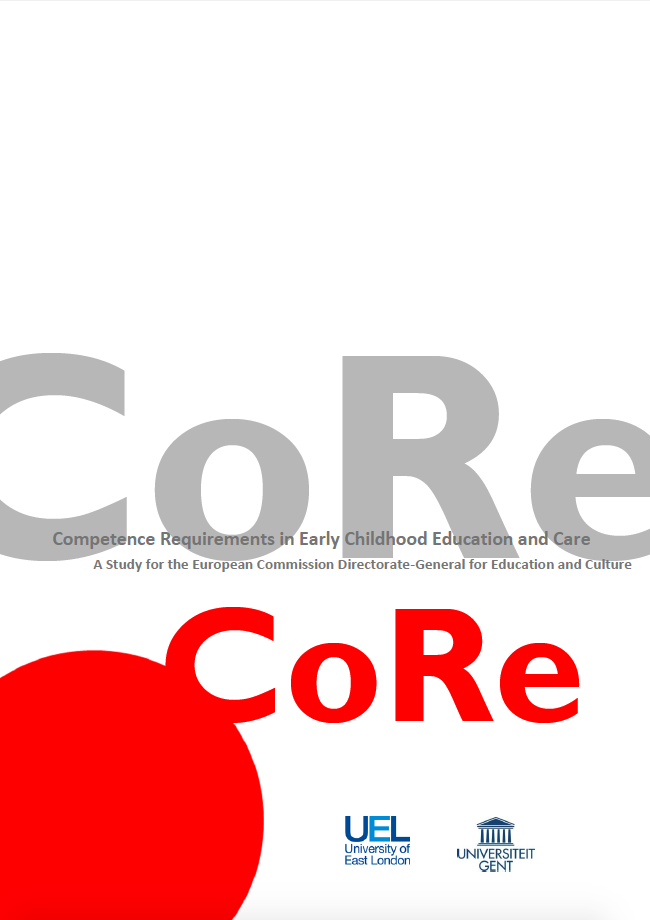
There is a broad consensus among researchers, practitioners, and policymakers that the quality of early childhood services – and ultimately the outcomes for children and families – depends on well-educated, experienced and ‘competent’ staff. But what exactly makes a competent early childhood practitioner? How can competence be understood, and its development supported, in the highly complex and demanding field of working professionally with young children, families and communities? What approaches do different countries take, and what lessons can be learnt from practices developed by practitioners, training institutions and policymakers across Europe? This report presents the findings of a European research project jointly conducted by the University of East London (UEL) and the University of Ghent (UGent). The ‘study on competence requirements in early childhood education and care’ (CoRe) explored conceptualisations of ‘competence’ and professionalism in early childhood practice, and identified systemic conditions for developing, supporting and maintaining competence in all layers of the early childhood system. In the light of the research findings, and intensive consultation with key stakeholders in ECEC in Europe, CoRe has developed policy recommendations, which are also part of this report.
The aim of CoRe is to provide policy-relevant information, advice and case studies with regard to the competences required for the ECEC workforce and how to support competence development from a systemic perspective. In order to achieve its aims, CoRe has conducted original research, reviewed previous work and international literature, and consulted with experts in the field over a period of 15 months. In this report, we present the findings of the different but interrelated strands of this process which underpin the policy recommendations regarding systemic competence development and professionalisation in early childhood education and care in Europe. By providing informed views on the questions at stake we hope to initiate discussion, to provoke new thinking, and to encourage new questions.


